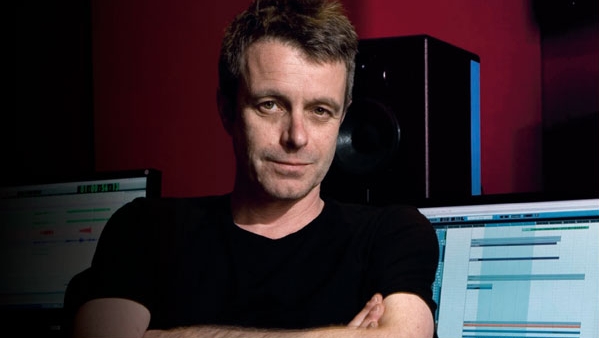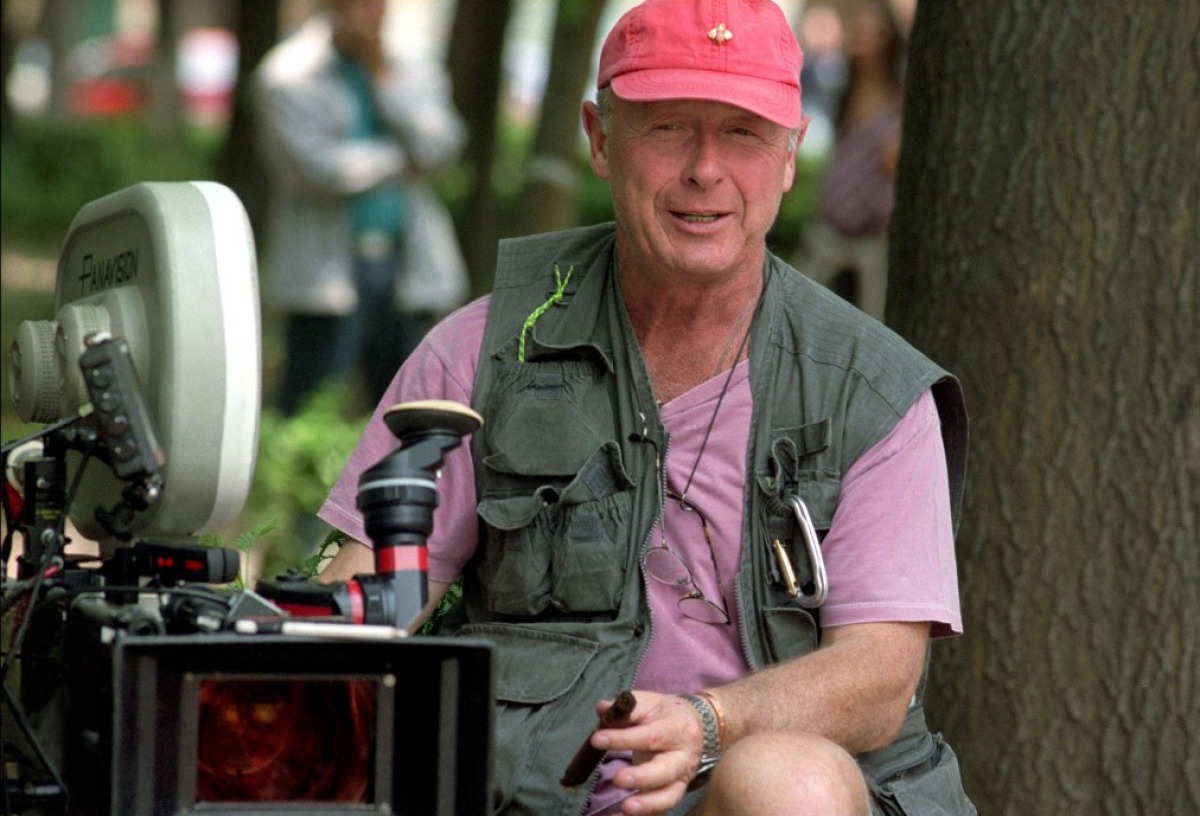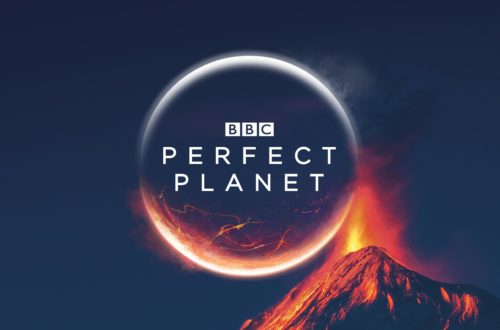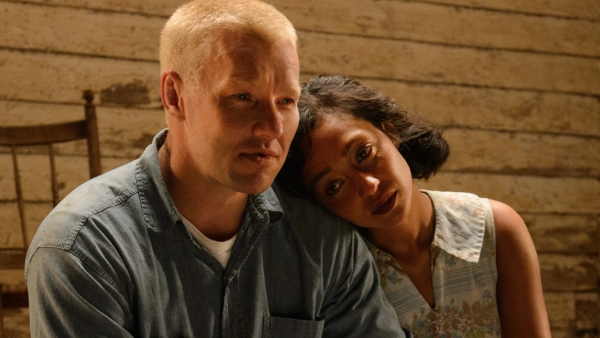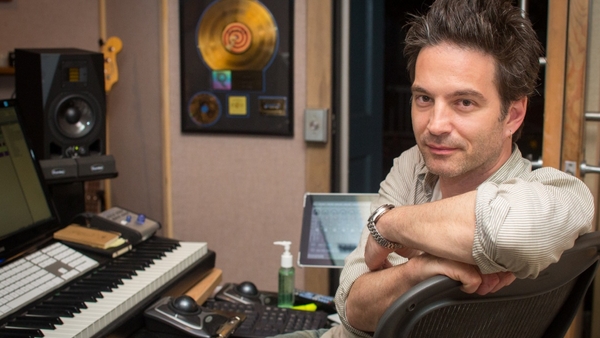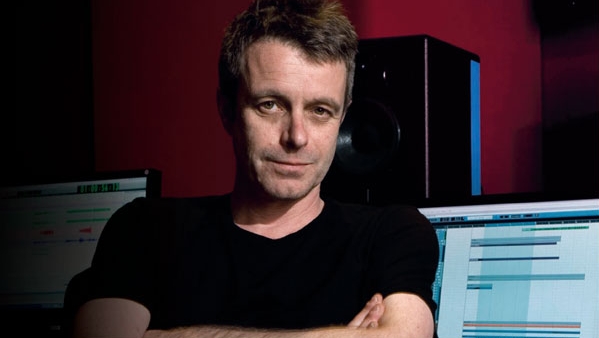 As much as we love films at GST, we love film scores just a little bit more. Zal Batmanglij’s amazing follow up to his stunning debut effort Sound of My Voice, The East resembles a smart ’70s styled throwback thriller that is smart, engaging and dripping with cool. One fine element in the cog of that brilliant machine is the score, well themes really, from the one and only Harry Gregson-Williams. I was extremely excited to take a phone call from Harry to talk about The East as well as his astonishingly diverse and accomplished career.
As much as we love films at GST, we love film scores just a little bit more. Zal Batmanglij’s amazing follow up to his stunning debut effort Sound of My Voice, The East resembles a smart ’70s styled throwback thriller that is smart, engaging and dripping with cool. One fine element in the cog of that brilliant machine is the score, well themes really, from the one and only Harry Gregson-Williams. I was extremely excited to take a phone call from Harry to talk about The East as well as his astonishingly diverse and accomplished career.
This was an amazing hour long interview and because of the breadth of topics I decided to break this into 2 parts. This first half will discuss The East and the follow-up will go into his amazing career. There’s a lot to cover so let’s get right to it…
——————————————————————————————————————————-
– Good morning Harry, thanks for calling.
Sure, sure no problem. So what would you like to talk about?
– I want to discuss the The East but before we get to that can we start with what projects you have currently?
Currently? Well I’ve just had a new baby in my family so that’s what I’m working on and so *laughs* I’m actually not working on a movie right now and I had just taken the last year away from film scoring. I took a sabbatical and decided to go back to the school in countryside of England where I learned all my music.
I’ve been over here in L.A. since June 1995. But I travel back many times a year to record at Abbey Road or some place like that so on this occasion I decided not to take anymore film work but to go back to teaching in England. I took my wife and my children back there and took a post as a composer in residence at the school where I was a student myself many years ago. So it’s been very rewarding, very enriching and energizing. We just got back from there so now I’m back in L.A. and will be getting back to work very soon. I’ve got a lot of scripts I’m looking at but I’ve not said yes to anything yet as my sabbatical’s not quite over and I think by September it should be.
– Well, wow congratulations on your newborn and your teaching endeavor. Let’s talk about The East. It’s a brilliant movie by Zal Batmanglij so take us back to the time when you got involved and how you got on board.
Thank you very much. Well I was contacted by Zal and …well let me back up. With this being a Scott Free production maybe it was Ridley Scott who contacted me because they were having difficulty with the music and wondered if I would look at it. I had a look at it and I really liked it. I met with Brit and Zal and they were just changing a film editor at that moment and he was pretty close on a cut, I think Zal had already previewed the film. I just really liked it and I really liked him as well, his attitude toward filmmaking and his way of going about things. We got on really really well. He really wanted me to do it but at the time I was really busy I was just finishing up another film and I was
honest with him I said “look man, I really want to do this but you need someone who is going to commit to you full time and I’m not going to be able to do that”. I know composers who manage to do two films at one time but that’s not me, that’s never been me. So I said “I’d love to but I’m not sure I can be involved in the most conventional way for me to be able to do the score”.
So he asked me for a suggestion how we could make that work and I had an assistant of mine who I’ve known since I actually taught him as a boy back in England named Halli Cauthery. He had come out to be my assistant here in L.A. about 5 years ago. He’s very talented and he’s done some stuff on his own, just branching out with his own stuff, so this felt like an ideal opportunity for him to take on a big project like this. It’d be great for him and great for all of us. So I said to Zal, it’s a great film, let’s let Halli take it on, write some themes and I’d write some of the more important cues. So I could interact with Zal, I could be his point man and actually be involved in the project and I could guide Halli through it. And you know, in this dog eat dog world that we live in in the entertainment business, it’s great that filmmakers can have the imagination and say “ok great, this Halli Cauthery has a few credits, not very many, but one has to start somewhere”, you see what I’m saying? “This is a huge break for him as long as he has the safety net with Harry behind him, and if Zal’s able to have Harry do some important moments in the film and guide Halley it we’ll be OK.”
And that’s how I put it to the filmmakers and they went for it. It suited everybody. It suited me because I could be involved in the film without actually scoring the film because I was too busy. It suited Zal because he did to work with me even if it was on a limited basis and he got Halli to score the rest of the film which worked out really well. It worked really well for someone starting out in the big time and these sort of opportunities don’t come along very often but when they do you really have to grab them.
Now how would I know that? Well I know that because a similar thing happened to me back in 1995, 1996 with Hans Zimmer. A small crumb fell from the table of Zimmer and I was there to catch it. That’s how these things happen. That’s the arrangement I made with Zal hoping the Scott brothers would be OK with that arrangement. They could have said no, we’ll just do something different. But they said “yeah, we think we can make that work, give this guy an opportunity” and that’s how we did the film. I wrote a couple tunes, some thematic material and that was a good bouncing board for Halli to start from and Zal came to some meetings with me and Halli and we began a kind of partnership in that respect. Then I was able to leave Halley to score the body of the film basing his music off the cues I had already done and then I came back towards the end of the project to see the mixing of and delivering of the music making sure the filmmakers were happy right to the very end. That’s pretty much all about that. It’s a pretty neat little film, have you seen it?
– Yes, I saw it the middle of April when Zal and Brit were coming to town on a Press tour. I loved it and loved talking with them during our interview. We actually brought you up in it as we’re both big fans of your work, specifically Kingdom of Heaven. Zal said it was a dream to work with you, he’s been following you since your first project.
Well that’s why I feel it worked out really well and actually he was a dream to work with as well. I didn’t know his first film,
I hadn’t seen Sound of My Voice before but I think he’s extraordinary and really unique and I admire that partnership with Brit Marling. It’s thrilling the way they work creatively. I was very glad to be a part of it and it was the only way I could do that really, with my hand on my heart, without feeling like I was cheating the film, but I presented it exactly the way I said before and I think we all got what we set out to achieve. A lot of times things don’t work out like that, there have been numerous occasions where filmmakers aren’t so open to changing it up so hats off to them for that.
– Sounds like a very collaborative process for all parties, as well a unique first at bat especially for Halli. In your field, scoring film is a bit of a guessing game so coming in a little late and having physical material to work with must have been a little more helpful right? How much of the film was there to see at the time you committed?
I actually saw the whole film. Zal hadn’t re-shot the ending so it was a director’s cut, it was a work in progress but it was still a very neat little film which got better and better. He had Fox Searchlight on his side, they believed in him, I know Ridley Scott did and I think they gave him the time and space he needed to make those alterations to his first draft as it were and that was it so I knew exactly what I was getting into and that’s why I wanted to do it.
– When it comes to working with a director, whether it’s Zal or specifically Tony Scott which we’ll get to in a minute, what’s your approach to working with somebody who either doesn’t know music or come from that kind of background.
Oh, well Zal’s very musical I reckon. I don’t know him very well but he’s pretty musical in the way he would express himself with words, it was very intelligent. It was pretty easy to follow what he was going for even if it wasn’t in musical terms. But I’d still say he’s a pretty musical guy. I know his brother is and I know he’s got music in his family. His brother actually wrote a cues for the movie, a really neat cue called “Doc’s Theme” which is actually played on screen by Toby Kebbell in that scene when he starts banging the piano at one point in the film.
– We touched on that at one point in our interview, which is weird because that’s not really his brother’s style of music. So when you’re working on a film how do you handle adapting your personal tastes to the architecture of the story or what the director thinks he wants in the film.
Well I think that’s part of being a film composer, it’s the whole process of finding something in the story, a task to find something completely new and original to you. I remember, it’s now 12 or 13 years ago that I did a film called Deceiver with Tim Roth and Renée Zellweger,
and I wouldn’t say these films were particularly similar in content but they’re both quiet thrillers, smartly written and they’re both written and directed by young intelligent people. Now I remember at that point my agent calling and told me there’s this film called Deceiver and it’s got a really small budget but you should really do this. So I said, “Ok what do I do? What do I do?” They told me I’ve got to write a demo of some music and do something to make the filmmakers know you exist. So I wrote a demo and sent it in and later got a meeting with the directors, these identical twin brothers and we got on really fabulously well, I thought we got on excellently. It was a fantastic meeting. I drove up to Hollywood, met with them and drove back to my studio on Venice beach thinking I’m sure I got that film. Then I waited and one day turned into a week, then a month and I heard nothing nothing nothing, didn’t hear a thing and I thought, oh man, what am I to do? What are we gonna do? Then I went and talked to one of my mates and he said, well Danny Elfman is having a look at it.
Now Danny is someone I hold in high esteem and someone who is certainly higher on than the ladder than me and if a person like him was interested in doing this tiny little low-budget film then obviously they were looking for him. Then my agent said well, no, don’t count yourself out he might not be able to do it, he might decide he doesn’t want to do it, something might change. But as luck would have it something did change. I got a call and I got the movie so I started writing this quiet thiller-ish slightly noir-ish music and I remember thinking this is a fabulous opportunity and since it was a small budgeted picture that didn’t allow for an orchestra or something like that we had to do it mostly on machines but I thought this was a similar opportunity for Halli to go and write this kind of music, this kind of film doesn’t come along everyday and I like its style, a suspenseful thriller.
– Yes very suspenseful, Zal mentioned that this is influenced by the Alan J. Pakula “thrillogy” of Klute, The Parallax View and All the President’s Men, those ’70s era thrillers and he enjoyed working with you to develop something that seemed reflective of those films. The story by itself is very bold but you and Halli make it even bolder, nearly overpowering at times. Regarding the outline you created, where did your work stop and Halli’s continue?
I wrote three of four cues to begin with which contained thematic material which was the kind of style I was going for and I had Zal come to my studio where he game me his comments and I made changes as necessary and we crated the sound for the film on these early cues. One was the opening cue of the movie, one was much later in the movie when things get really tense and the others were peppered around the movie. Once we got those right and the essence of those right it was possible for Halli to jump in and say OK these are my tools, I’ll go and paint the whole picture. It’s like that with whatever project there is when you’re collaborating.
– OK I was wondering if there as a constant check system, if Halli started work and then constantly went back to you for approval for everything or was he allowed to stretch his wings, work on his own and with Zal to keep moving forward.
Yes I have to say he really went for it. As I say I was pretty much front and center to begin with until we really got everyone on the same page as to how we’d score this movie and then he had a body of time where I was busy finishing up another film so Halli really took the reigns and ran with it. I came back only at the very end of the project to write a couple more of the crucial cues and to make sure the music was delivered exactly how Zal wanted it to be. I think it turned out really well and believe Halli turned in some very fine work. I’m very proud of it and him.
– The East is a Scott Free production and that seems like a good segue. The Scott Brothers films are a big portion of your resume, so can we go back and talk about your relationship with them, even as far back as something like Revenge.
Ha, well actually I don’t go back as far as Revenge. Weirdly I scored a little bit of Revenge only about 6 years ago. I have forgotten the name of the composer who scored Revenge but he was that mad guy, I think he died, oh hell what was his name? Anyway at that point in time I hadn’t yet met Tony, I wasn’t even doing film music at that time, I was teaching music in Egypt, no no no, I hadn’t even come to America at that time. By the time I had done 5 or 6 feature films for Tony Scott we were thick as thieves. We were halfway through another project when he came to me and said, “look I’ve got this chance to remaster Revenge. It was released in theaters with a cut I never agreed with. I had always wanted it a certain way but I didn’t have clout at that time. I’ve always wanted to have the master and the budget to go back and re-edit it, and now I’m being allowed to do that for the Director’s Cut version of the DVD. I’m cutting across some music cues and I might need you to come in and re-link some of the original music and add some new original music. How do you feel about that?”. I said, “sure Tony, I’ll anything you want me to do. Of course, it’d be an honor, I love the film.”
So he got to do with the film what he wanted to do with it. I don’t know the full story behind it, but I remember at dinner one night, when we were doing Revenge, he said “you know just like anyone else, when I started I had no pull, and I had to watch my P’s and Q’s. The producer was a very strong producer, named Don Black and he particularly wanted the film to be cut in a certain way which wasn’t how I wanted it”, but Tony had to let it go and then here he was years and years later being offered the chance to correct that wrong. Now I don’t think you’d find, certainly in any of the 10 or 11 films we’ve done with him, if you gave him a chance to redo them I don’t think he’d do them any differently. I honesty don’t. He’s such a particular artist someone who will scrutinize every frame. That’s why he drove us all crazy *laughs* but that’s why he was the obsessive extraordinary director that he was. He demanded complete and utter focus on the job and that’s what was amazing about him.
In my opinion this was the only film in his portfolio that I think he’d want to change, I mean if you watch his version of Revenge its quite different – there’s a lot more sex in it and it was a very sexy movie, so he says, which a lot of it was cut out. But it’s mostly character with him, some really cool moments that he had to cut out for what reason I don’t know, but that was his chance to finally do it his way. But I play such a small part in that I take no credit for that at all. I did a little bit of original music and I altered some of the original score. The composer who scored it is dead otherwise I’m sure he would have done that himself.
– You’ve done a lot with Tony Scott over the years and it’s really impressive the relationship you have. Can you even begin to describe your experience working with such an iconic filmmaker?
I’ve had a tremendously good time working with Tony and odd timing came along with his misfortune. I had been needing a break and decided to take a sabbatical, take a back seat in Hollywood as it were. I had decided to do that before Tony committed suicide actually. I would have had to have taken a break anyhow if I had been here in Hollywood when he had done that. None of it made any sense to me. He’s meant everything to me. You know, when I look at the last 17 or 18 years without Tony and his influence on me I don’t know how I would have fared at all. He’s been a very very positive influence on me, and helped stretch me in directions I would have never thought to go. If you take his scores out of my output of what, 50 films over the course of that decade and a half, it’s pretty monosyllabic and pretty much family fare, with the exception of a few Ben Affleck films dusted around and nonsense action movies. But with Tony’s films included in there, there’s at least some depth and breadth to what I’ve been doing and that’s entirely due to my relationship with him.
——————————————————————————————————————————-
Harry was extremely open to this interview and touched on a number of topics. This was an amazing and informative hour long session and because of the breadth of topics we touched on and his responses I decided to break this into 2 parts. Click here to read the rest of this insightful interview as we discuss some high points along his amazing career.
